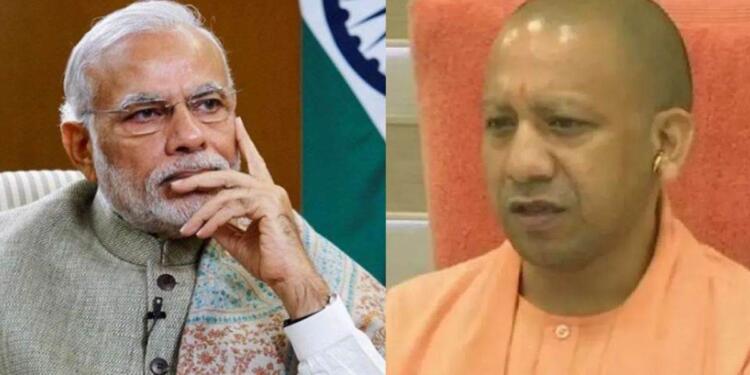The Bharatiya Janata Party (BJP)’s defeat in the Faizabad seat in Uttar Pradesh has surprised many, especially since the grand Ram Janmabhoomi temple was recently inaugurated in Ayodhya. This loss has puzzled not just BJP supporters but also political analysts, as the Ram temple’s politics were believed to have a deep influence in this region.
BJP candidate Lallu Singh, who had won this seat in the previous two elections, was defeated by Samajwadi Party (SP) candidate Awadhesh Prasad. Prasad won by over 54,000 votes, securing a total of 554,289 votes. This result signifies a significant shift in the local political dynamics.
Lallu Singh’s Controversial Comment and Its Impact
One major mistake by Lallu Singh was his controversial statement that the BJP needed a two-thirds majority to amend the Constitution. He made this statement on April 13 during a meeting in Milkipur, Ayodhya, where he has been an MLA five times.
The opposition quickly capitalized on this statement, accusing the BJP of intending to change reservations for Scheduled Castes and Backward Castes. SP’s national president, Akhilesh Yadav, claimed that the BJP had a “hidden agenda” to abolish reservations for backward castes, Dalits, and minorities.
Support from Dalit Voters and Political Strategy
The SP strategically nominated Awadhesh Prasad, a member of the Pasi community, which boosted the party’s appeal among Dalits. Prasad’s election slogan, “In Ayodhya, neither Mathura nor Kashi; only Awadhesh Pasi,” resonated deeply with the Dalit community, who voted against the BJP.
Local Discontent and Administrative Decisions
Local discontent over administrative decisions related to the Ram temple also played a crucial role. The widening of roads for temple access led to the demolition or displacement of over 4,000 shops. According to a BJP worker in Ayodhya, residents felt betrayed by unfulfilled promises of compensation and rehabilitation, leading many shopkeepers to feel deceived.
One resident mentioned operating a shop near the temporary temple, which was demolished for road widening in 2020. Despite being promised a new shop, he was initially given only ₹1 lakh in compensation. Later, he was asked to pay ₹20 lakh for the new shop allocation, reflecting administrative negligence and financial burden that turned many residents against the BJP.
Disappointment Among BJP Workers
Another journalist noted the disappointment among BJP workers when Prime Minister Narendra Modi repeatedly praised Iqbal Ansari during his campaign in the region, overlooking those who had sacrificed for the temple. Ansari was a prominent litigant from the Muslim side in the Babri Masjid-Ram Janmabhoomi legal dispute. Despite local respect for the Ansari family, ignoring those who made significant sacrifices for the temple caused discontent among BJP supporters. Additionally, the awarding of the Padma Vibhushan to Mulayam Singh Yadav, who had ordered firing on kar sevaks in 1990, fueled anger among BJP workers.
Conclusion
BJP’s defeat in Ayodhya can be attributed to a combination of insensitive development practices, controversial political rhetoric, and the failure to address local grievances. While the temple’s construction fulfills a long-held desire and evokes a sense of pride, for many locals, it symbolizes displacement and marginalization. This election result serves as a stark reminder that while symbolic gestures may resonate nationally, local issues and sentiments ultimately drive electoral outcomes.
ALSO READ: The fail of BJP’s “WASHING MACHINE” strategy


























